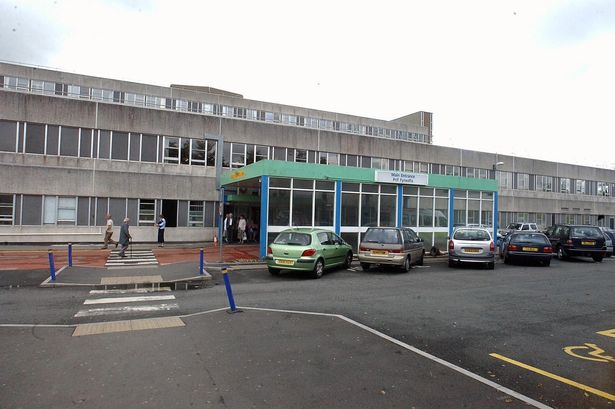The hospital board’s urgent appeal underscores a critical strain on its resources, characterized by an overwhelming influx of patients requiring immediate medical attention. This “exceptionally busy” status, coupled with the “very high numbers of unwell patients,” paints a picture of a healthcare system stretched thin, grappling with a surge in demand that threatens to compromise the quality and timeliness of care. The board’s explicit request for the public to avoid the hospital unless “seriously unwell” is a clear indication of the severity of the situation, reflecting a need to prioritize resources for those most in need and mitigate further overcrowding that could exacerbate the existing pressures. This plea underscores the crucial role of public cooperation in ensuring the hospital can effectively manage the current crisis and deliver essential care to those facing serious medical conditions.
The board’s statement likely reflects a confluence of factors contributing to this heightened demand. Seasonal illnesses, such as influenza and other respiratory viruses, often place a significant burden on hospitals, particularly during the colder months. Combined with the ongoing impact of COVID-19, which continues to circulate and contribute to hospitalizations, these factors can create a perfect storm, leading to a surge in patients seeking medical care. Additionally, the potential resurgence of other respiratory illnesses, suppressed during periods of stricter pandemic measures, could further exacerbate the strain on hospital resources. Underlying these immediate factors are the long-term challenges facing healthcare systems, including staff shortages, bed capacity limitations, and the backlog of elective procedures postponed during pandemic peaks, all of which contribute to the current vulnerability to overwhelming surges in patient numbers.
The request for the public to stay away unless “seriously unwell” is not just a plea for cooperation; it’s a strategic necessity for effective resource allocation. Prioritizing patients with acute and severe conditions ensures that those most in need receive timely and appropriate care. Emergency departments, designed to handle immediate life-threatening situations, can quickly become overwhelmed when inundated with less urgent cases. This overcrowding can lead to extended wait times, delayed diagnoses, and potentially compromised outcomes for all patients, including those facing critical illnesses. By urging individuals with less serious conditions to seek alternative care options, the hospital can better manage its resources and maintain its capacity to provide essential care to those who require immediate intervention.
This public call for responsible healthcare utilization highlights the importance of understanding the appropriate avenues for seeking medical attention. Individuals experiencing non-life-threatening symptoms are encouraged to consider alternative options, such as consulting with their primary care physician, utilizing telehealth services, or visiting urgent care clinics. These alternative pathways can provide timely and appropriate care for less severe conditions, freeing up crucial hospital resources for those facing more serious medical emergencies. Understanding the distinction between emergency and non-emergency situations is critical for responsible healthcare utilization, contributing to a more efficient and effective healthcare system overall.
The hospital board’s warning serves as a stark reminder of the interconnectedness between public health and individual responsibility. By adhering to the board’s request and seeking appropriate care based on the severity of symptoms, individuals can contribute to a collective effort to alleviate the strain on the hospital system. This public cooperation is essential for ensuring that the hospital can continue to provide critical care to those who need it most, particularly during periods of heightened demand. Furthermore, it underscores the vital role of preventative measures, such as vaccinations and good hygiene practices, in reducing the overall burden on healthcare resources.
Beyond the immediate crisis, the hospital’s situation reflects the broader challenges facing healthcare systems and the need for ongoing efforts to strengthen their resilience. Addressing issues such as staff shortages, increasing bed capacity, and streamlining patient flow are crucial for ensuring that hospitals can effectively manage future surges in demand. Investing in preventative healthcare measures, promoting public health awareness, and fostering responsible healthcare utilization are all essential components of building a more robust and sustainable healthcare system capable of meeting the evolving needs of the population. The current crisis serves as a call to action, urging both individual responsibility and systemic improvements to ensure that hospitals can continue to provide essential care to all who need it, now and in the future.














